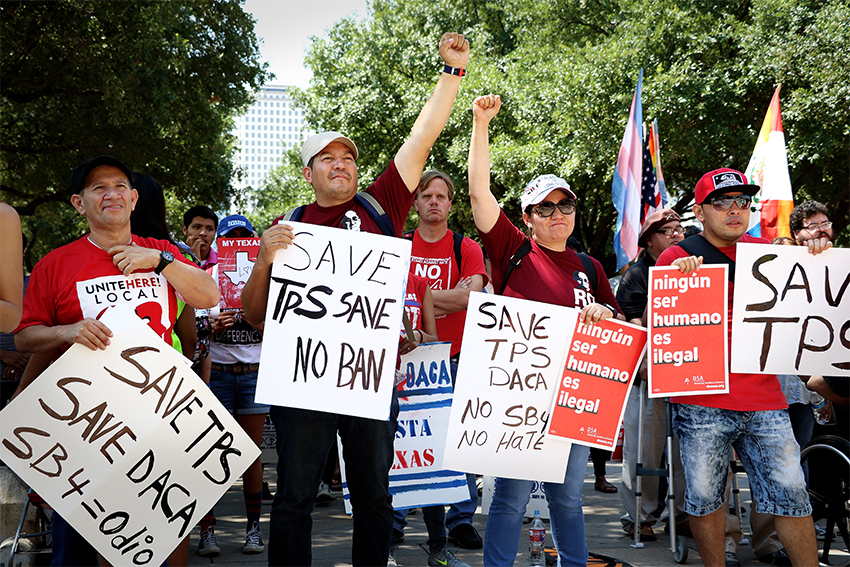The 5th Circuit Court of Appeals decided last week to mostly uphold Senate Bill 4, the “anti-sanctuary cities law,” for now.
Several cities, including El Paso, Austin and Houston, sued the state after Gov. Greg Abbott signed the bill into law last spring. As written, the bill requires local law enforcement to cooperate with Immigration and Customs Enforcement detainer requests and authorizes officers to inquire about their immigration status, a provision many believed would lead to increased racial profiling.
However, this is not the final decision on the law. Federal judge Orlando Garcia of San Antonio, who blocked the law before it went into effect on Sept. 1, must still issue a ruling on the law’s constitutionality. This is expected in the coming months.
For the moment, the 5th Circuit has allowed all but one part of the law to stand. The blocked provision may have allowed the state to punish local government officials for criticizing the law.
“With one exception, SB 4’s provisions do not, on their face, violate the Constitution,” the court wrote in the decision.
In the ruling, the court wrote that the plaintiffs had not proven they are likely to succeed in the case on the basis that the law is unconstitutional and said there is “no merit in their remaining arguments.”
Texas Attorney General Ken Paxton applauded the decision and said the law protects the safety of law enforcement officers and Texans across the state.
“Enforcing immigration law prevents the release of individuals from custody who have been charged with serious crimes,” Paxton said in a press release. “Dangerous criminals shouldn’t be allowed back into our communities to possibly commit more crimes.”
Thomas A. Saenz, president and general counsel of the Mexican American Legal Defense and Education Fund, said in a statement he was disappointed to hear the 5th Circuit did not see the “inherent and unconstitutional defects in the language and in the enactment” of SB 4.
“In short, the battle against SB 4 is far from over,” Saenz said. “We remain confident that this horrific law will ultimately find its rightful place in the dustbin of history. In the meantime, we must continue to work together to limit the damage to the community that this Texas legislative abomination could wreak.”
In September, the 5th Circuit allowed parts of SB4, including the ICE-detainer request provision, to be enacted while litigation proceeded. News on the legal battle over the bill has been limited in the months since, so much so that Vanessa Rodriguez, government sophomore and undocumented student, said many in the undocumented community had forgotten about it.
Rodriguez is also a member of University Leadership Initiative, a group that advocates on behalf of the undocumented community. Rodriguez said many, especially college students, have been focused exclusively on the never-ending federal war over the Deferred Action for Childhood Arrivals program, which protects young undocumented immigrants from deportation, so the 5th Circuit decision came as a shock.
“In Texas at least, SB4 was so huge, and then the (August) court decision put a halt on our worries, but immediately after Sept. 5, (when the federal government announced DACA was being rescinded), we got another thing to worry about,” Rodriguez said. “It’s been an on and off game between what issue we worry about more.”





















